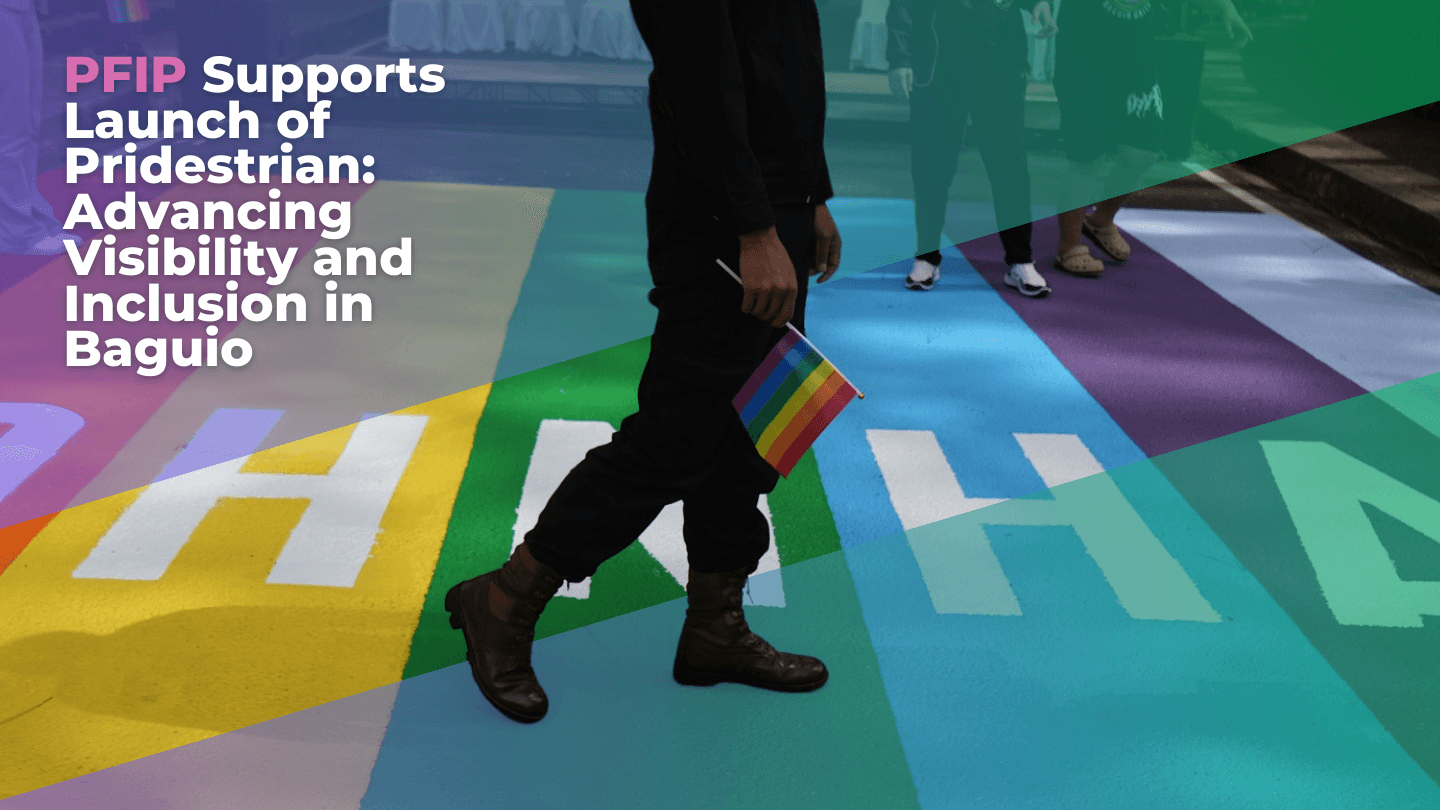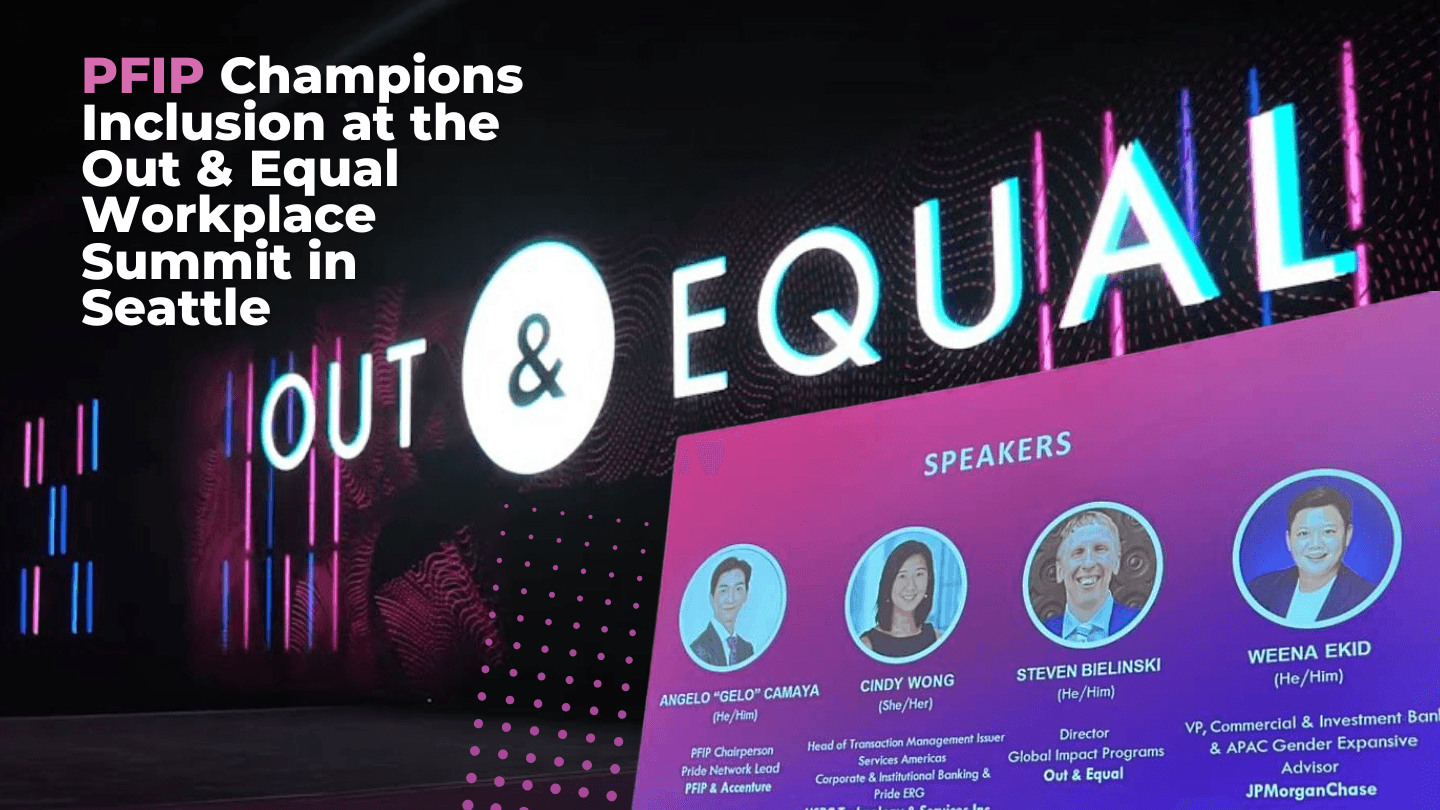In an increasingly diverse and inclusive workforce, something as simple as using the correct pronouns can make a world of difference.
For members of the LGBTQ+ community, especially transgender and nonbinary individuals, being referred to by the right pronouns is not just a matter of preference – it’s about respect and identity.
“Hindi lang ito simpleng mga salita. They reflect who a person is,” says Angelo Camaya, Chair of the Philippine Financial & Inter-Industry Pride (PFIP). “When we make the effort to use someone’s correct pronouns, we’re telling them: ‘I see you. I respect you. You belong here.’”
Why Pronouns Matter
In the workplace, where professionalism and respect are core values, normalizing pronoun use fosters a culture of inclusion.
For LGBTQ+ employees, especially those who are trans or nonbinary, misgendering – referring to someone using incorrect pronouns can be a daily reminder that they are not fully accepted.
Misgendering can lead to feelings of exclusion, anxiety, and even reduced job performance. On the other hand, environments that embrace pronoun use such as including them in email signatures or during introductions create safer, more welcoming spaces.
“DEIB is not just about having the right policies – it’s about everyday behaviors,” Camaya explains. “Including pronouns in our workplace culture is a simple, yet powerful, step toward equity and belonging.”
Pronouns and DEIB
Diversity, Equity, Inclusion, and Belonging (DEIB) is at the core of many modern corporate strategies. Yet DEIB is not just about hiring practices or policy reform; it’s also about interpersonal respect and authentic representation.
Recognizing and respecting someone’s pronouns is an act of equity. It levels the playing field by ensuring that all individuals, regardless of gender identity, are acknowledged and affirmed.
In many PFIP member organizations, it has become standard practice to include pronouns in Zoom names, name badges, LinkedIn profiles, and email footers.
“At PFIP, we believe that culture change happens in the details,” says Camaya. “When leaders model inclusive behavior like using pronouns and encouraging others to do the same – it signals to the entire organization that respect is not negotiable.”
Making the Shift
Implementing pronoun use in the workplace can be as simple as encouraging team members to introduce themselves with their pronouns, or adding a line in onboarding materials that explains why pronouns matter. “
It’s important to remember that this shift takes time, and that not everyone will be comfortable right away. But with leadership support, these small changes can have a big impact.
Camaya shares, “The most inclusive workplaces are the ones that allow people to show up as their full selves. That starts with language, and pronouns are a big part of that language.”
A Culture of Belonging
More than just a corporate trend, pronoun inclusion is part of a broader cultural shift – one where LGBTQ+ individuals are not just accepted, but celebrated.
“When we say that people are our greatest asset, that includes all people, in their truth and diversity,” Camaya affirms.
“Using the right pronouns is a simple act that says: You are welcome here, just as you are.”
As companies across the Philippines continue to embrace DEIB, respecting pronouns is a step forward not just for LGBTQ+ employees, but for everyone who believes in workplaces where kindness, respect, and authenticity lead the way.






